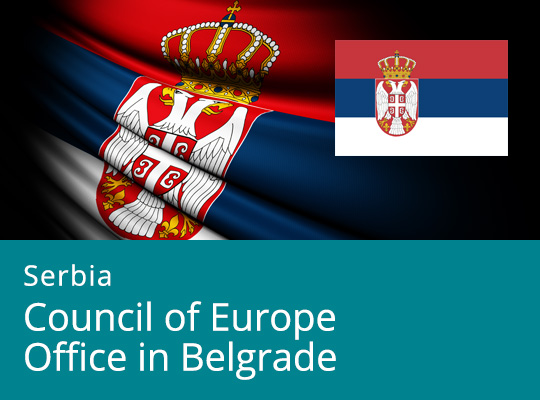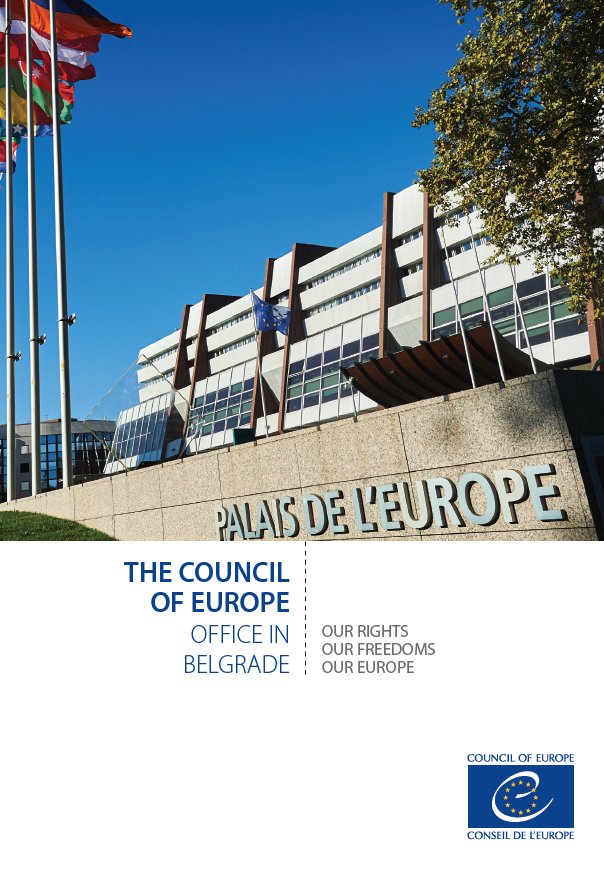The Council of Europe’s Group of States against Corruption (GRECO), in a report published today, calls for further measures to prevent corruption in Serbia in respect of persons with top executive functions, including the President of the Republic, ministers, assistant ministers, state secretaries, chiefs of cabinet and political advisers, as well as members of the Serbian Police. GRECO provides 24 recommendations to the country’s authorities and awaits a report on their implementation by end September 2023 (see the French version of the report as well as the Serbian translation provided by the authorities).
In the evaluation report, GRECO notes the central role played by the Agency for the Prevention of Corruption in many respects, such as public bodies’ integrity plans adopted to offset corruption, public officials’ asset declarations, training and advice, and lobbying rules. The Agency’s action is based on the Law on the Prevention of Corruption, which imposes requirements on public officials, and the Law on Lobbying. GRECO recommends, however, that the role of the Agency be strengthened by making public its recommendations and the response of the Government and Presidential administration. Besides, the remit of the Law should be expanded to cover all persons with top executive functions, including the chiefs of cabinet of the Prime Minister and of Deputy Prime Ministers, as well as advisers.
In addition, as far as central governing structures are concerned, GRECO calls for a public strategy on corruption prevention that would explicitly cover persons with top executive functions. Integrity checks should take place prior to the appointment of ministers, as well as a part of the recruitment of chiefs of cabinets and advisors (including those of the President) to manage possible risks of conflict of interest. In addition, all persons with top executive functions should be required to disclose ad hoc conflicts of interest, and the exception whereby they are exempt from doing so in case of “danger of delay” in the decision-making should be removed from the law.
Moreover, integrity standards corresponding to top executive functions should be collected in a code of conduct, accompanied by practical guidance and sanctions in case of violation. GRECO also recommends developing an appropriate document on conduct for the President. Post-employment restrictions should apply to all persons with top executive functions, including the President, the chiefs of cabinet of the Prime Minister and of Deputy Prime Ministers as well as ministers’ advisers.
GRECO stresses that asset declarations of persons with top executive functions should systematically undergo substantive monitoring. Similarly, contacts of the President and the Government with lobbyists should be disclosed and reported publicly.
GRECO notes that few public officials with top executive functions have been prosecuted for corruption offences, especially compared with allegations of conflicts of interest widely reported in the media, and that all have been prosecuted after leaving office, i.e. there have been no decisions to lift the immunity of top officials from 2015 to March 2022 when this report was adopted. Considering the low level of prosecution, the immunity provided to Government members ought not to cover corruption-related offences, GRECO recommends.
Despite some progress, increased transparency of the legislative process in respect of government draft laws is required, notably, laws emanating from the Government should be systematically submitted for public consultation. Rejections of requests for public information from the Government and Presidential administration should be open to appeal.
As regards the law enforcement, GRECO finds that a public strategy on corruption prevention in the police should be adopted. Measures should also be taken to achieve a more open and transparent competition in the procedure of appointment of the Chief of Police and other senior management posts to prevent political appointments. Moreover, the existing Code of Police Ethics should be revised so as to cover all relevant integrity topics (such as conflict of interest, gifts, contacts with third parties, outside activities) and be accompanied by practical examples. Regular integrity vetting throughout the career of police members needs to be put in place as well as rotation of staff in corruption risk-prone areas.
A body responsible for recording and evaluating gifts should be set up as soon as possible, and the value of occasional gifts that can be kept by police officers which currently stands at EUR 680 per year should be considerably reduced.
Finally, safeguards should be in place to ensure sufficiently independent and transparent investigations into complaints against the police and to encourage whistleblowing.
This is GRECO’s first report on Serbia in the 5th Evaluation Round which focuses on preventing corruption and promoting integrity in central governments (top executive functions) and law enforcement agencies. The implementation of the recommendations addressed to Serbia will be assessed by GRECO through its compliance procedure in 2023.
* * *
The Group of States against Corruption (GRECO) is a Council of Europe body that aims to improve the capacity of its members to fight corruption by monitoring their compliance with anti-corruption standards. It helps states to identify deficiencies in national anti-corruption policies, prompting the necessary legislative, institutional and practical reforms.





